Cork Views: Looking back on 30 years of SECAD
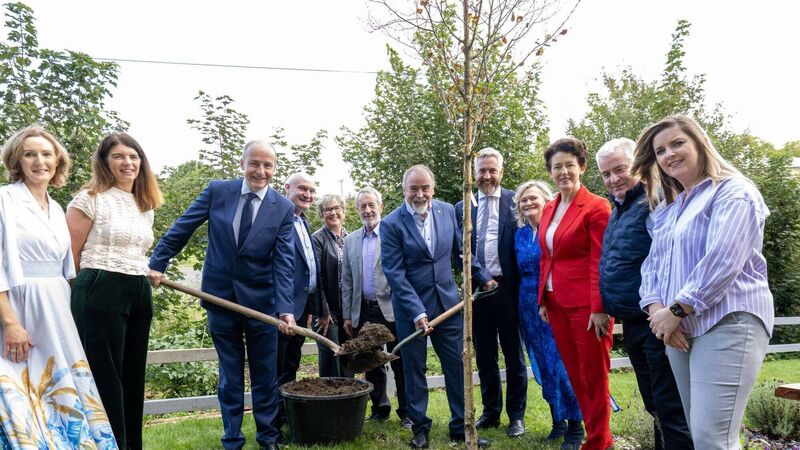
An Taoiseach, Micheál Martin performing a tree planting ceremony assisted by Ryan Howard, CEO, SECAD, to mark their 30th anniversary. The event brought together SECAD staff, project partners, representatives of community groups and companies supported by SECAD, and elected officials, with Cllr Marie O’Sullivan deputising for the Mayor of County Cork. Picture: Brian Lougheed
When SECAD Partnership was first established in 1995, we had little more than a technical grant, a volunteer board, and myself as its first employee. The original trustees had secured just six months of funding to test if a local development company could make a difference in East Cork. There were no guarantees.
But there was belief – that communities could chart their own course, if given the tools and trust to do so.
Ireland at that time was a very different place. Traditional industries were in retreat. The dependence on agriculture, once the backbone of rural communities, was no longer enough to sustain families. Many of our young people saw no choice but to leave.
I remember graduating from university in the early ’80s with the sobering knowledge that not a single one of my classmates had any prospect of a job in Ireland. That was the reality for my generation, and it was tearing rural communities apart.
Against that backdrop, SECAD was born. The idea was simple but powerful: development should be bottom-up, not top-down. Local people knew their own challenges best, and they should have a voice and a role in shaping the solutions.
Looking back, 30 years later, I am struck not only by how far we’ve come, but by the lessons communities have taught us along the way.
The first lesson is the sheer scale of what community development can achieve when it is resourced and trusted.
In three decades, SECAD has supported over 18,000 individuals to find work, start businesses, and build confidence. We have provided advice and grants to more than 200 local enterprises, helping them create and sustain jobs in rural communities. We have guided and invested in over 500 community projects - from youth centres and sports clubs to renovated halls and community spaces.
Our Wild Work initiative, launched in 2017, has brought biodiversity and environmental awareness into the heart of communities, supporting more than 60 projects every year.
Since 2015, we have managed Community Benefit Funds linked to renewable energy projects, ensuring that local people see tangible benefits from wind farms, solar parks and infrastructure developments. By 2025, more than 1,500 projects across 50 locations will have been supported through these funds.
Taken together, that represents more than €100 million invested in local sustainable development. But behind every figure is a story of a person, a family, a community that has been able to take a step forward.
A second lesson is the value of partnership. Two of the most significant and strategic programmes we deliver are SICAP (the Social Inclusion and Community Activation Programme) and LEADER. SICAP focuses on tackling disadvantage and promoting equality of opportunity, while LEADER provides funding for rural and community development, supporting projects that create jobs, improve quality of life and protect the environment.
Alongside these, SECAD also delivers more targeted employment support schemes such as Tús – a community work placement programme for the unemployed; the Rural Social Scheme (RSS), which offers part-time work for low-income farmers and fishers on community projects; and LAES (Local Area Employment Services), which provides one-to-one guidance, training and job-matching support.
While these programmes might sound bureaucratic, at their core they are about people. All share a commitment to ensuring no-one is excluded from opportunity, whether through poverty, unemployment, disability, migration, or isolation.
SECAD’s role has always been to bridge the gap between the State and the community - to translate policy into real supports on the ground, and to make sure that programmes meet people where they are.
In practice, that has meant helping a woman returning to work after raising children; supporting a farmer to earn a supplementary income through the Rural Social Scheme; or guiding a new community group in how to access funding for a much-needed facility.
These programmes work as they combine national support with local knowledge. The State alone cannot know every community’s needs; communities alone cannot always access the resources to meet them. But when the two come together, real progress is made.
A third lesson is that trust is everything. From the start, we learned communities know their own priorities better than anyone else. Our job has never been to arrive with ready-made answers, but to listen, to support, and to help turn local ideas into action.
That trust has built resilience. It has allowed communities to respond to population growth, to the arrival of new communities seeking protection in Ireland, and to changing economic conditions.
Since 2022 alone, SECAD has worked with over 1,200 people seeking protection in Cork, helping them with skills training, employment support and community engagement. None of this would have been possible without trust on all sides.
Although SECAD’s roots are firmly in East Cork, our remit has grown over the years. In 2009 we expanded into Carrigaline and South Cork, later moving into Mid and West Cork, and now we are engaged in projects across the island. Wherever we go, the principle remains the same: development must be community-led, inclusive, and sustainable.
And while we can be proud of what has been achieved, the journey is far from over. The challenges facing communities today - from climate change to housing pressures to the need for stronger social cohesion - are different from those of 1995. But the principle that guided our work then is just as true: strong, connected communities are the foundation of progress.
As we mark SECAD’s 30th anniversary, I feel immense pride in what has been achieved, and deep gratitude to those who made it possible: volunteers who gave their time, staff who gave their commitment, funders and partners who gave their trust, and above all the communities who gave their energy and vision.
To mark the milestone, we created ‘30 Stories for 30 Years’, an exhibition that captures just a fraction of the projects and people who have shaped our journey. Each story is a reminder that development is not about numbers on a page, but about the lives changed and the connections made.
This anniversary is not only about looking back. It is about carrying forward values that have guided us - connection, inclusion, trust, and belief in people - into the next chapter.
If the past 30 years have taught me anything, it is this: when communities are given the tools and the trust to shape their own futures, remarkable things can happen.
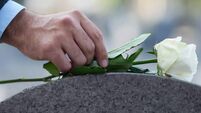
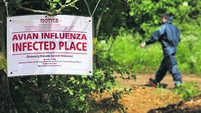
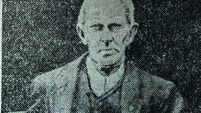
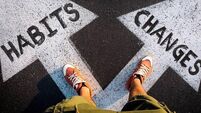
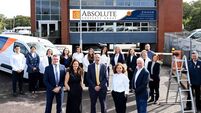

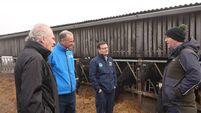
 App?
App?




